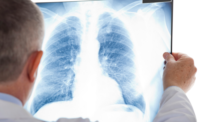Adults with asthma are at increased risk for pneumococcal disease, yet according to a new CDC study published in the American Journal of Preventive Medicine, just 54 percent of adults with work-related asthma—asthma triggered by an exposure at work—have been vaccinated against the infection. CDC recommends all adults 19 through 64 years old with asthma get the pneumococcal polysaccharide vaccine.
NIOSH researchers found that adults with work-related asthma were more likely to have reported receiving a pneumococcal vaccine than adults with non-work-related asthma — 54 percent compared with 35 percent, respectively. Among adults with work-related asthma, pneumococcal vaccine coverage was lowest among Hispanics (36 percent), those without health insurance (39 percent), and adults ages 18 to 44 years (42 percent).
“People with work-related asthma are particularly vulnerable to pneumococcal pneumonia,” said NIOSH Director John Howard, M.D. “Vaccination is the best way to prevent pneumococcal disease, including pneumonia, and CDC recommends that all adults with asthma, whether work-related or not, get the pneumococcal polysaccharide vaccine.”
CDC estimates that about 900,000 Americans get pneumococcal pneumonia each year and about five percent to seven percent die from it. Adults with asthma who get pneumococcal pneumonia are at risk for additional complications including asthma exacerbation and invasive pneumococcal disease. The Advisory Committee on Immunization Practices recommends a pneumococcal polysaccharide vaccination for all adults 19 through 64 years old with asthma.
Pneumococcal disease is an infection caused by Streptococcus pneumoniae, which can cause many types of illnesses including ear infections, meningitis, and pneumonia. Vaccination is the safest, most effective way to protect yourself from getting pneumococcal disease. Pneumococcal vaccines help protect against some of the more than 90 types of pneumococcal bacteria.
Source: NIOSH


